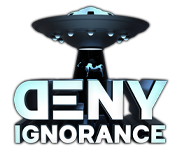04-08-2024, 01:50 AM
This is a sticky wicket.
Truth is, at one point at least, Catholicism was the Christian religion... whether it is debatable or not, the numbers of believers reflected the fact plainly. But since humankind is nothing if not litigious (prone to a fault of compulsively dissecting words and statements,) it stands to reason that any group of would-be like-minded individuals will soon descend into discussion and dispute over minutiae. Pride and vainglory being what they are, compounded with "tradition" versus "progress," we soon find schisms and fractures among the different opinions... hence, it is now proposed that "Catholicism" is "distinct" and "separate" from "common" Christianity.
Here is an article which I found fairly useful in the arguments about the differences... although some points merit special focus, and others seem simple enough.
From HowStuffWorks.com: Catholic vs. Christian: Overlap and Differences in the Religions
All squares are rectangles, but not all rectangles are squares; the same goes for the Catholic vs. Christian distinction. All Catholics are Christian, but not all Christians consider themselves Catholic.
First, I would like to address something basic... the word/name "Catholic." The word Catholic (comes from the ancient Greek (katholikos) 'universal') and embraces the notion of 'the whole, according to the whole, in general.' The first known record of the use of "Catholic" was by Saint Ignatius of Antioch (about 110 AD). In a second century communication (Letter to the to the Smyrnaeans) in he coined the phrase "...just as where Jesus Christ is, there is the Catholic Church," which we might take to mean "A universal church of faithful, an all-embracing 'brotherhood' of faith.") The name stuck. 2nd Century marketing at work there. Many take it to be regarded as a collective word expressing that all are welcome to belong, and in fact do... even if they are unaware of their standing as beloved of God.
The author carries out his task with respect and skill, but my own "litigious" nature compels me to interject a few things...
All Christian religions are based on the teachings of a Judean religious leader named Jesus Christ, who is believed to have lived in the 1st Century C.E. in what is now modern-day Israel and Palestine.
That Jesus Christ was a religious "leader" is questionably posited. He was an upstart, a radical, someone who raised concerns about tradition and cultural 'laws.' "Leading" was of course, how we look upon it as a historical perspective... but that might be a wrong-minded approach to considering how it was that he was received and dealt with by the powers that were. He was the progenitor of a movement, and the inspiration of a New Testament. It stood to reason that entrenched institutionalized concerns were threatened by the man... enlisting the sympathy from the local overlords of an occupying empire was an act of self-service.
... However, even within the ranks of this relatively young belief system, there were some who had opposing views on how to best spread the word of God.
The disagreements were on "how to spread the word"... not the word itself. In that regard, there was no relationship to dissent for the faith, only it's proselytization. This was before there was any realistic "institution" to fracture... there wasn't even an actual "body" of faith to follow... the New Testament was to follow later... that's when the fracturing problems began.
The author moves on to consider the so-called "schism" of the 11th century. If we are realistic about the situation which gave rise to it, we have to acknowledge that it was about political power, institutional regulations, and in a few cases, scriptural interpretation.
By the time the faith had spread and "prospered" 1,000 years later, the institution it spawned was embroiled in political power struggles, as well as "traditional" views on what makes a priest worthy of anointment, and to some extent, metaphysical interpretation... (For example... objections to the Nicene Creed, were metaphysical contrivances, not "practice" matters like the "required" or "mandated" celibacy for clergy.)
Hundreds of years later came the 'reformation' movement which - for the most part - was inspired by the then mammoth institutions' affliction with the power-hungry, prideful behaviors of corrupted leaders and high-level officers of the clergy. At that point we were still beset with the ideological form of mandating 'acceptance' and 'compliance' due to the standing of the leaders of the church itself, rather than any enlightenment... dissent was blasphemy by definition at that time... and people were still impressed by violent suppression of blasphemy.
Of course, rather than distinguish themselves by actually reforming the church, the proponents simply took the path of least resistance by divorcing themselves from the institution entirely and creating a 'new' church... All things being equal, we would all eventually see that it is not churches that become corrupted... it is the 'actors' in the church who become corrupted... and all churches feature actors who can fall to that sin.
The author continues by discussing several similarities and differences within the Catholic v Christian paradigm. The similarities speak for themselves, as they all are endorsed scripturally. But the differences speak to something that should be more fruitful for debate...
Rather than belabor the content more... I suggest you read and think on the differences, listed or otherwise and open a discussion... if you're game.
Truth is, at one point at least, Catholicism was the Christian religion... whether it is debatable or not, the numbers of believers reflected the fact plainly. But since humankind is nothing if not litigious (prone to a fault of compulsively dissecting words and statements,) it stands to reason that any group of would-be like-minded individuals will soon descend into discussion and dispute over minutiae. Pride and vainglory being what they are, compounded with "tradition" versus "progress," we soon find schisms and fractures among the different opinions... hence, it is now proposed that "Catholicism" is "distinct" and "separate" from "common" Christianity.
Here is an article which I found fairly useful in the arguments about the differences... although some points merit special focus, and others seem simple enough.
From HowStuffWorks.com: Catholic vs. Christian: Overlap and Differences in the Religions
All squares are rectangles, but not all rectangles are squares; the same goes for the Catholic vs. Christian distinction. All Catholics are Christian, but not all Christians consider themselves Catholic.
First, I would like to address something basic... the word/name "Catholic." The word Catholic (comes from the ancient Greek (katholikos) 'universal') and embraces the notion of 'the whole, according to the whole, in general.' The first known record of the use of "Catholic" was by Saint Ignatius of Antioch (about 110 AD). In a second century communication (Letter to the to the Smyrnaeans) in he coined the phrase "...just as where Jesus Christ is, there is the Catholic Church," which we might take to mean "A universal church of faithful, an all-embracing 'brotherhood' of faith.") The name stuck. 2nd Century marketing at work there. Many take it to be regarded as a collective word expressing that all are welcome to belong, and in fact do... even if they are unaware of their standing as beloved of God.
The author carries out his task with respect and skill, but my own "litigious" nature compels me to interject a few things...
All Christian religions are based on the teachings of a Judean religious leader named Jesus Christ, who is believed to have lived in the 1st Century C.E. in what is now modern-day Israel and Palestine.
That Jesus Christ was a religious "leader" is questionably posited. He was an upstart, a radical, someone who raised concerns about tradition and cultural 'laws.' "Leading" was of course, how we look upon it as a historical perspective... but that might be a wrong-minded approach to considering how it was that he was received and dealt with by the powers that were. He was the progenitor of a movement, and the inspiration of a New Testament. It stood to reason that entrenched institutionalized concerns were threatened by the man... enlisting the sympathy from the local overlords of an occupying empire was an act of self-service.
... However, even within the ranks of this relatively young belief system, there were some who had opposing views on how to best spread the word of God.
The disagreements were on "how to spread the word"... not the word itself. In that regard, there was no relationship to dissent for the faith, only it's proselytization. This was before there was any realistic "institution" to fracture... there wasn't even an actual "body" of faith to follow... the New Testament was to follow later... that's when the fracturing problems began.
The author moves on to consider the so-called "schism" of the 11th century. If we are realistic about the situation which gave rise to it, we have to acknowledge that it was about political power, institutional regulations, and in a few cases, scriptural interpretation.
By the time the faith had spread and "prospered" 1,000 years later, the institution it spawned was embroiled in political power struggles, as well as "traditional" views on what makes a priest worthy of anointment, and to some extent, metaphysical interpretation... (For example... objections to the Nicene Creed, were metaphysical contrivances, not "practice" matters like the "required" or "mandated" celibacy for clergy.)
Hundreds of years later came the 'reformation' movement which - for the most part - was inspired by the then mammoth institutions' affliction with the power-hungry, prideful behaviors of corrupted leaders and high-level officers of the clergy. At that point we were still beset with the ideological form of mandating 'acceptance' and 'compliance' due to the standing of the leaders of the church itself, rather than any enlightenment... dissent was blasphemy by definition at that time... and people were still impressed by violent suppression of blasphemy.
Of course, rather than distinguish themselves by actually reforming the church, the proponents simply took the path of least resistance by divorcing themselves from the institution entirely and creating a 'new' church... All things being equal, we would all eventually see that it is not churches that become corrupted... it is the 'actors' in the church who become corrupted... and all churches feature actors who can fall to that sin.
The author continues by discussing several similarities and differences within the Catholic v Christian paradigm. The similarities speak for themselves, as they all are endorsed scripturally. But the differences speak to something that should be more fruitful for debate...
Rather than belabor the content more... I suggest you read and think on the differences, listed or otherwise and open a discussion... if you're game.










